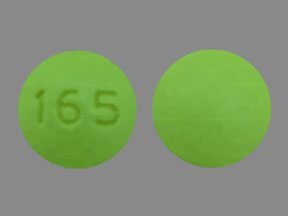Ferrous gluconate and Alcohol/Food Interactions
There is 1 alcohol/food/lifestyle interaction with ferrous gluconate.
Ferrous Gluconate Food/Lifestyle
Moderate Food Interaction
ADJUST DOSING INTERVAL: Concomitant use of some oral medications may reduce the bioavailability of orally administered iron, and vice versa.
Food taken in conjunction with oral iron supplements may reduce the bioavailability of the iron. However, in many patients intolerable gastrointestinal side effects occur necessitating administration with food.
MANAGEMENT: Ideally, iron products should be taken on an empty stomach (i.e., at least 1 hour before or 2 hours after meals), but if this is not possible, administer with meals and monitor the patient more closely for a subtherapeutic effect. Some studies suggest administration of iron with ascorbic acid may enhance bioavailability. In addition, administration of oral iron products and some oral medications should be separated whenever the bioavailability of either agent may be decreased. Consult the product labeling for specific separation times and monitor clinical responses as appropriate.
References (2)
- "Product Information. Feosol (ferrous sulfate)." SmithKline Beecham
- (2021) "Product Information. Accrufer (ferric maltol)." Shield Therapeutics
Switch to consumer interaction data
Ferrous gluconate drug interactions
There are 89 drug interactions with ferrous gluconate.
Ferrous gluconate disease interactions
There are 3 disease interactions with ferrous gluconate which include:
More about ferrous gluconate
- ferrous gluconate consumer information
- Check interactions
- Compare alternatives
- Reviews (5)
- Drug images
- Side effects
- Dosage information
- During pregnancy
- Drug class: iron products
- En español
Related treatment guides
Drug Interaction Classification
| Highly clinically significant. Avoid combinations; the risk of the interaction outweighs the benefit. | |
| Moderately clinically significant. Usually avoid combinations; use it only under special circumstances. | |
| Minimally clinically significant. Minimize risk; assess risk and consider an alternative drug, take steps to circumvent the interaction risk and/or institute a monitoring plan. | |
| No interaction information available. |
See also:
Further information
Always consult your healthcare provider to ensure the information displayed on this page applies to your personal circumstances.


